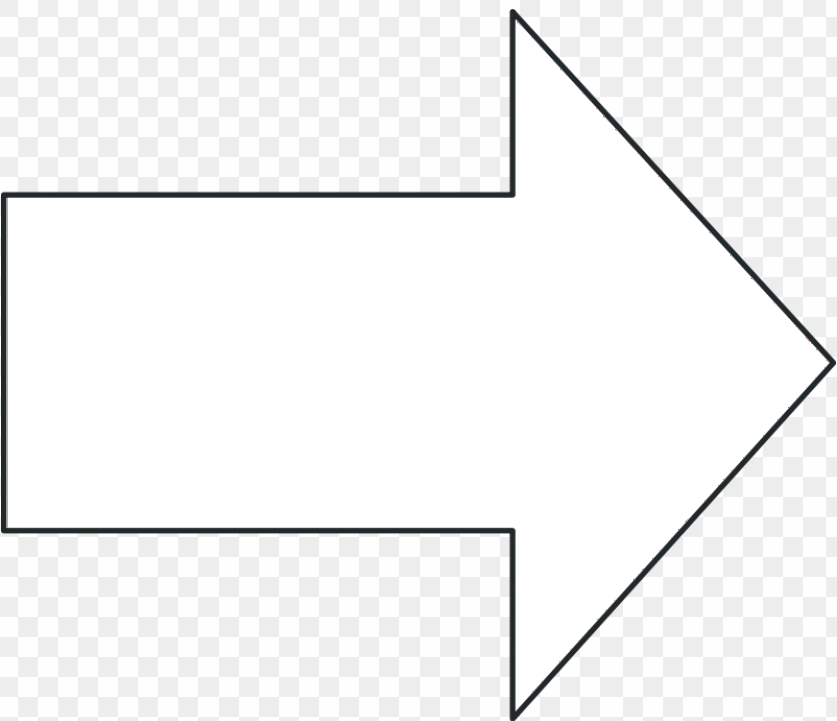All medications cause side effects, but thiazide diuretics, of which hydrochlorothiazide is one, are among the better tolerated of the antihypertensive agents.1-3 In studies, people are less likely to withdraw due to adverse effects of HCTZ than from placebo.2,3 However, some serious adverse events that have been reported for HCTZ include acute myopia and angle-closure glaucoma,4-7 gout,4,8-12 allergic reactions,4 and electrolyte disturbances,4,12-16 such as hypokalemia, hypochloremia, and hyponatremia.
A 2014 Cochrane Review meta-analysis found 60 randomized controlled trials that studied the dose-related trough BP lowering efficacy of six different thiazide diuretics in 11,262 participants.3 Compared with placebo, HCTZ had significantly lower withdrawals due to adverse effects (relative risk [RR] 0.64, 95% confidence interval [CI] [0.43 – 0.93]) based on 20 trials (n=3,698).
A randomized, double-blind study of 1,292 hypertensive men (mean age 59±10 years; 48% black) compared six antihypertensive drugs and placebo for efficacy and tolerability.2 It found the withdrawal rate due to subjective side effects for patients on HCTZ was 3% which was less than for all other drugs and placebo. No side effects occurred more frequently in patients taking HCTZ than placebo.
Acute Myopia and Angle-Closure Glaucoma
According to the FDA-approved manufacturer’s package insert and case reports in the medical literature, HCTZ can cause acute transient myopia and acute angle-closure glaucoma (ACG).4-7 The symptoms typically have an acute onset within hours to weeks of starting HCTZ and include decreased visual acuity, ocular pain, and headache due to increased intraocular pressure.4-6
Permanent vision loss can occur if acute angle-closure glaucoma goes untreated.4 The manufacturer’s package insert states that the patient must stop HCTZ at once. In some cases, all signs and symptoms resolved within about ten days after HCTZ was stopped.6 However, uncontrolled intraocular pressure may require prompt treatment with medicine and/or surgery.4 People with a history of sulfonamide or penicillin allergy have a higher risk of this adverse event.
A 2016 systematic literature review and analysis found four case reports of ACG in people taking HCTZ.7 They assessed the cases using two scoring systems to determine the likelihood that the bilateral ACG was caused by the medication: the Naranjo adverse drug reaction probability scale and the 2° ACG scoring system. The authors concluded that HCTZ had a “probable” Naranjo score and a “likely” bilateral 2° ACG score. This analysis demonstrates the rarity of ACG caused by HCTZ but supports its potential as a side effect of HCTZ.
Gout
Gout is an uncommon adverse effect associated with HCTZ, with an increased risk with doses of 25 mg or higher.8-12 It is more likely in people with a personal or family history of gout or who have chronic renal failure. Thiazide diuretics can increase serum urate because they decrease urate renal excretion.9
A 2014 study evaluated the risk of new-onset gout after starting HCTZ (n=2,022) compared with chlorthalidone (n=1,011).8 Wilson et al. found that new-onset gout occurred in the chlorthalidone patients in 17 of 1,011 (1.68%) versus 26 of 2,022 (1.29%) in the HCTZ group (p=0.27). The mean number of days until the first episode of gout was 152.7 days, but it occurred in as little as 22 days and as late as 345 days.
A 1997 retrospective study of 9,249 patients 65 years or older who newly started an antihypertensive medication found that thiazide diuretics resulted in an adjusted relative risk for initiation of anti-gout therapy of 1.99 (95% CI [1.21 – 3.26]) as opposed to 1.00 (95% CI [0.65 – 1.53]) for non-thiazide antihypertensive medication.12 The risk was highest for patients using a combination thiazide/non-thiazide medication with a risk of 2.29 (95% CI [1.55 – 3.37]). A significantly higher risk of gout occurred with doses of thiazide diuretic 25 mg or higher (in HCTZ equivalents) with the adjusted relative risk of 1.78 (95% CI [0.66 – 4.78]) for <25 mg/day dose increasing to 2.39 (95% CI [1.29 – 4.43]) and 2.41 (95% CI [1.39 – 4.19]), with dose increases of 25 – 49 mg/day and 50+ mg/day, respectively.
Hypokalemia
From 10% (25 – 50 mg HCTZ a day) to up to 40% (100 mg HCTZ a day) of outpatients on thiazide diuretic therapy may develop hypokalemia (serum potassium level of less than 3.5 mmol/L).13-16 The manufacturer’s package insert states that patients on diuretic therapy should be monitored for fluid and electrolyte imbalances, particularly hypokalemia, hyponatremia, and hypochloremic alkalosis at “appropriate intervals”.4 According to 2017 hypertension guidelines from the American College of Cardiology and American Heart Association (ACC/AHA), patients started on a diuretic should have blood tests of electrolytes and renal function within two to four weeks after starting therapy.17
People on diuretic therapy should be aware of and watch for warning signs or symptoms of fluid and electrolyte imbalance.4 These include nausea and vomiting, dry mouth, excessive thirst, muscle pains or cramps, weakness, lethargy, drowsiness, restlessness, confusion, seizures, hypotension, oliguria, and tachycardia. Serum and urine electrolyte testing should be done for people on diuretic therapy who are at high risk for electrolyte imbalances. This includes those who are vomiting excessively or on parenteral fluids. Other risk factors for hypokalemia include: concomitant severe cirrhosis, prolonged or high dose diuretic therapy, and inadequate oral potassium intake. To avoid or treat hypokalemia, people may need to take potassium supplements or raise high-potassium food intake.
Hypokalemia can cause serious arrhythmias.4,14,15 Hypokalemia is particularly dangerous for people with pre-existing cardiovascular disease and especially those on digitalis therapy.
In the previously mentioned 2014 Cochrane Review of thiazide diuretics, analysis of 11 trials found the overall decrease in serum potassium levels for HCTZ (3 – 100 mg/day) was -0.23 mmol/L (95% CI [-0.26 - -0.19]).3 The decrease was seen to be dose-related with larger reduction in potassium occurring at higher dose levels: at a 12.5 mg/day dose the mean difference [MD] was -0.16 mmol/L (95% CI [-0.21 – -0.11]); at a 25 mg/day an MD -0.30 mmol/L (95% CI [-0.36 – -0.24]); and at 50 mg/day an MD -0.48 mmol/L (95% CI [-0.68 – -0.29]). However, heterogeneity between doses was significant (p<0.00001, with I2=60%).
Licht et al. compared several diuretic therapies for the treatment of hypertension and found that the group on HCTZ monotherapy of 50 mg per day (n=500) had a hypokalemia prevalence of 11%.15 The group on 25 mg per day HCTZ monotherapy (n=183) only had a 2.2% prevalence. This demonstrates the dose effect on the development of hypokalemia.
Rodenburg et al. found 507 cases of hypokalemia during follow-up of 13,328 patients who were taking a thiazide diuretic alone or HCTZ in combination with another medication (epitizide or triamterene).16 After adjusting for sex, age, and use of a potassium-sparing diuretic or a renin-angiotensin system inhibitor, the authors found an 11 times higher risk of hypokalemia was associated with taking a thiazide compared to no use (RR 11.18, 95% CI [8.95 – 13.96]). Even mild hypokalemia can lead to serious health problems including cardiovascular mortality.
Allergic Reactions
The manufacturer’s package insert states that severe allergic reactions, including anaphylaxis, can occur.4 People at higher risk are those allergic to HCTZ or another sulfonamide-derived drug.
A 2013 review of 45 years of medical literature only found 17 research articles on the potential for people with a sulfonamide antibiotic allergy being cross-reactive to non-antibiotic sulfonamide-based medications (such as HCTZ).18 Only a few case reports of possible HCTZ cross-reactivity were found and in all cases testing and follow-up were not done to verify that the reported symptoms were due to HCTZ. Wulf NR and Matuszewski KA concluded that nonantibacterial sulfonamide agents should not be withheld from people who had prior reactions to an antibacterial sulfonamide.
References
- Ramsay LE. Thiazide diuretics in hypertension. Clin Exp Hypertens 1999; 21 (5-6): 805-814.
- Materson BJ, Reda DJ, Cushman WC, et al. Single-drug therapy for hypertension in men. A comparison of six antihypertensive agents with placebo. The Department of Veterans Affairs Cooperative Study Group on Antihypertensive Agents. N Engl J Med 1993; 328 (13): 914-921.
- Musini VM, Nazer M, Bassett K, Wright JM. Blood pressure-lowering efficacy of monotherapy with thiazide diuretics for primary hypertension. Cochrane Database Syst Rev 2014; (5): Cd003824.
- Hydrochlorothiazide [package insert]. Morgantown, WV: Mylan Pharmaceuticals, Inc.; 2011.
- Geanon JD, Perkins TW. Bilateral acute angle-closure glaucoma associated with drug sensitivity to hydrochlorothiazide. Arch Ophthalmol 1995; 113 (10): 1231-1232.
- Roh YR, Woo SJ, Park KH. Acute-onset bilateral myopia and ciliochoroidal effusion induced by hydrochlorothiazide. Korean J Ophthalmol 2011; 25 (3): 214-217.
- Murphy RM, Bakir B, O'Brien C, Wiggs JL, Pasquale LR. Drug-induced Bilateral Secondary Angle-Closure Glaucoma: A Literature Synthesis. J Glaucoma 2016; 25 (2): e99-105.
- Wilson L, Nair KV, Saseen JJ. Comparison of new-onset gout in adults prescribed chlorthalidone vs. hydrochlorothiazide for hypertension. J Clin Hypertens (Greenwich) 2014; 16 (12): 864-868.
- McAdams DeMarco MA, Maynard JW, Baer AN, et al. Diuretic use, increased serum urate levels, and risk of incident gout in a population-based study of adults with hypertension: the Atherosclerosis Risk in Communities cohort study. Arthritis Rheum 2012; 64 (1): 121-129.
- Sommerauer C, Kaushik N, Woodham A, et al. Thiazides in the management of hypertension in older adults - a systematic review. BMC Geriatr 2017; 17 (Suppl 1): 228.
- Bruderer S, Bodmer M, Jick SS, Meier CR. Use of diuretics and risk of incident gout: a population-based case-control study. Arthritis Rheumatol 2014; 66 (1): 185-196.
- Gurwitz JH, Kalish SC, Bohn RL, et al. Thiazide diuretics and the initiation of anti-gout therapy. J Clin Epidemiol 1997; 50 (8): 953-959.
- Cohn JN, Kowey PR, Whelton PK, Prisant LM. New guidelines for potassium replacement in clinical practice: a contemporary review by the National Council on Potassium in Clinical Practice. Arch Intern Med 2000; 160 (16): 2429-2436.
- Gennari FJ. Hypokalemia. N Engl J Med 1998; 339 (7): 451-458.
- Licht JH, Haley RJ, Pugh B, Lewis SB. Diuretic regimens in essential hypertension. A comparison of hypokalemic effects, BP control, and cost. Arch Intern Med 1983; 143 (9): 1694-1699.
- Rodenburg EM, Visser LE, Hoorn EJ, et al. Thiazides and the risk of hypokalemia in the general population. J Hypertens 2014; 32 (10): 2092-2097; discussion 2097.
- Whelton PK, Carey RM, Aronow WS, et al. 2017 ACC/AHA/AAPA/ABC/ACPM/AGS/APhA/ASH/ASPC/NMA/PCNA guideline for the prevention, detection, evaluation, and management of high blood pressure in adults: executive summary: a report of the American College of Cardiology/American Heart Association Task Force on Clinical Practice Guidelines. Hypertension 2017.
- Wulf NR, Matuszewski KA. Sulfonamide cross-reactivity: is there evidence to support broad cross-allergenicity? Am J Health Syst Pharm 2013; 70 (17): 1483-1494.

.png)
